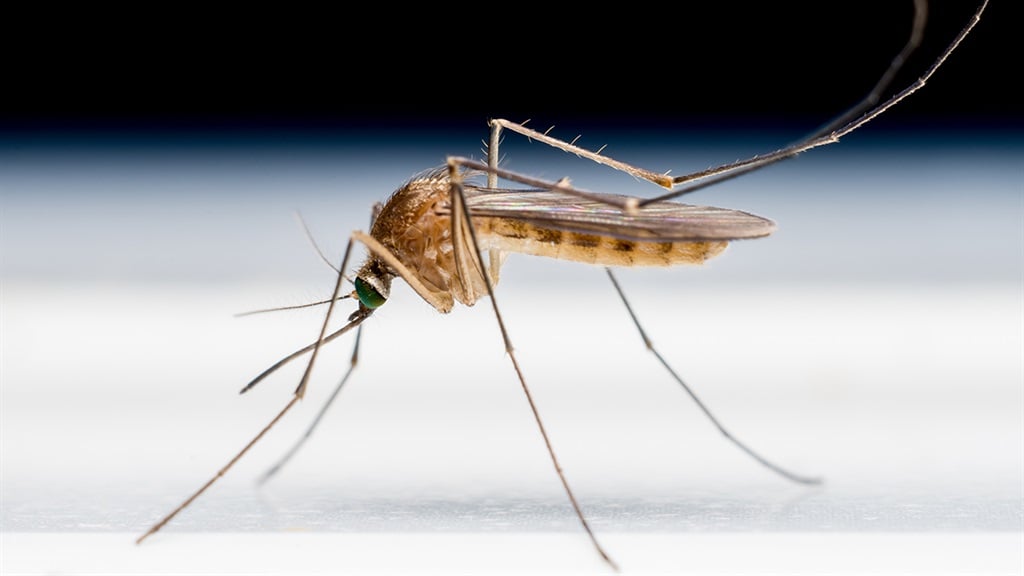
Malaria patients' reluctance to visit healthcare facilities out of fear of Covid-19 exposure, threatens the gains made against malaria and in the malaria-elimination aspirations of many African countries, including South Africa, writes Jaishree Raman.
The dire warnings that Africa's fragile healthcare systems would crumble amid the pressure brought about by the ongoing Covid-19 pandemic, resulting in significant increases in malaria cases, have, fortunately, not materialised. However, the pandemic has disrupted the delivery of routine healthcare services on a global scale.
The Global Fund recently reported significant decreases in testing for HIV, TB and malaria in low- and middle-income African and Asian countries in 2020, compared to 2019. It suggests that these decreases in testing rates could result in marked increases in deaths from HIV, TB, and malaria in 2021, unless urgent steps are taken to improve testing and treatment responses.
A year ago, national malaria control programmes across Africa responded promptly to the call by the World Health Organisation to limit the impact of Covid-19 on the delivery of essential malaria prevention and treatment services.
Malaria control programmes employed novel, innovative strategies that enabled the successful distribution of insecticide-treated nets and spraying of households with insecticides, while ensuring the safety of both the community members and malaria programme workforce. This strong commitment displayed by malaria control programmes across Africa, played a significant role in preventing upsurges in malaria cases over the past year, keeping the continent's malaria control and elimination efforts on track.
Reduced cross-border travel
Despite numerous resource and logistical challenges in 2020, South Africa managed to complete most of its planned malaria control activities. This, together with significantly reduced cross-border movements due to stringent travel restrictions, has resulted in South Africa reporting a significantly lower number of malaria cases in 2020 than 2019, strengthening the country's potential to eliminate malaria by 2023.
Malaria patients' reluctance to visit healthcare facilities for a variety of reasons, including fears of Covid-19 exposure and/or Covid-19-related restrictions on movement, threatens the gains made against malaria and in the malaria-elimination aspirations of many African countries, including South Africa.
When patients do visit healthcare facilitates, the situation is further complicated by the fact that malaria and Covid-19 share several non-specific symptoms.
In light of the global focus on Covid-19 and South Africa's relatively low malaria transmission intensity, when a patient has fever, fast breathing, headaches and fatigue, many healthcare professionals only consider Covid-19, often with tragic consequences. Since malaria is an unforgiving disease, rapidly progressing to severe illness, the earlier a patient is diagnosed and treated, the higher the chances of a complete recovery.
If South Africa is to prevent excess mortality due to malaria, awareness of the signs and symptoms of malaria among the general public and healthcare professionals must be raised, and early treatment-seeking behaviours encouraged.
Before ruling malaria out as a possible diagnosis, healthcare professionals must consider both the patient's symptoms and travel and residential information. If travel to or residence in an endemic malaria area within South Africa is reported, then malaria must be considered. Since the malaria point-of-care diagnostic - rapid diagnostic tests - which are readily available across the public health sector, are still highly sensitive in South Africa, and produce a result within 20 minutes, malaria can be confirmed or ruled out in a very timely manner, literally at the patient's bedside!
Despite recent reports of the emergence of African parasites resistant to artemisinin-based combination therapies (ACTs), the first-line malaria treatment in South Africa, artemether-lumefantrine, remains highly effective. Although some small studies have suggested that artemisinin derivatives may be an effective treatment against Covid-19, more data from more extensive studies are required to confirm this. While this data is being generated, artemisinin derivatives should be reserved solely for the treatment of malaria.
To ensure a complete recovery from malaria infection, patients must complete the entire course of antimalarials, even if they start feeling better before the course is completed, and that every dose is taken with a fatty food product (such as full cream milk, yoghurt, peanut butter, cheese) for optimal absorption of the antimalarial.
No malaria vaccine
With no malaria vaccine readily available, preventative options for travellers to malaria-endemic areas fall into two categories: pharmaceutical and non-pharmaceutical measures.
Pharmaceutical measures include the use of chemoprophylactics. These are not freely available in the South African public healthcare sector. They can be procured for a fee from travel clinics within the public and private sectors and pharmacies without a prescription. Like standard malaria treatment, the chemoprophylactic course must be completed for optimal protection. Non-pharmaceutical measures include personal protection, such as using repellents and wearing protective clothing at night to prevent mosquito bites.
The Covid-19 pandemic has very clearly demonstrated what can be achieved when well-resourced collectives work towards a common goal, even when an effective point-of-care diagnostic and treatment are not available.
If we are going to draw an emphatic line against malaria, a preventable and treatable disease, then we must all play our part.
There must be universal access to malaria treatment, strong political and community support for malaria elimination, sustainable financing for elimination interventions and a core team of dedicated professionals from the malaria control programme and all sectors of the economy impacted by malaria that are responsible for driving the elimination agenda.
- Dr Jaishree Raman is head of the Laboratory for Antimalarial Resistance Monitoring and Malaria Operational Research (Armmor) Centre for Emerging Zoonotic and Parasitic Diseases at the National Institute for Communicable Diseases.
*Want to respond to the columnist? Send your letter or article to opinions@news24.com with your name, profile picture, contact details and location. We encourage a diversity of voices and views in our readers' submissions and reserve the right not to publish any and all submissions received.
Disclaimer: News24 encourages freedom of speech and the expression of diverse views. The views of columnists published on News24 are therefore their own and do not necessarily represent the views of News24.
